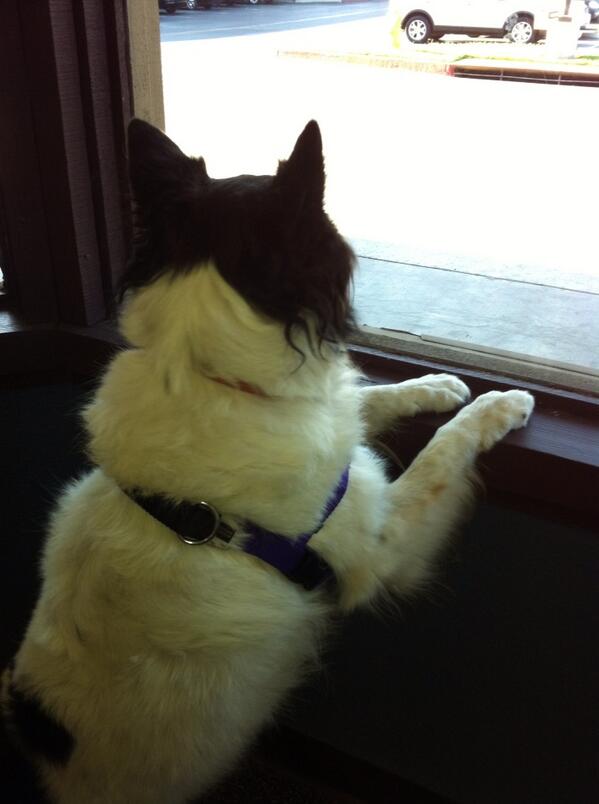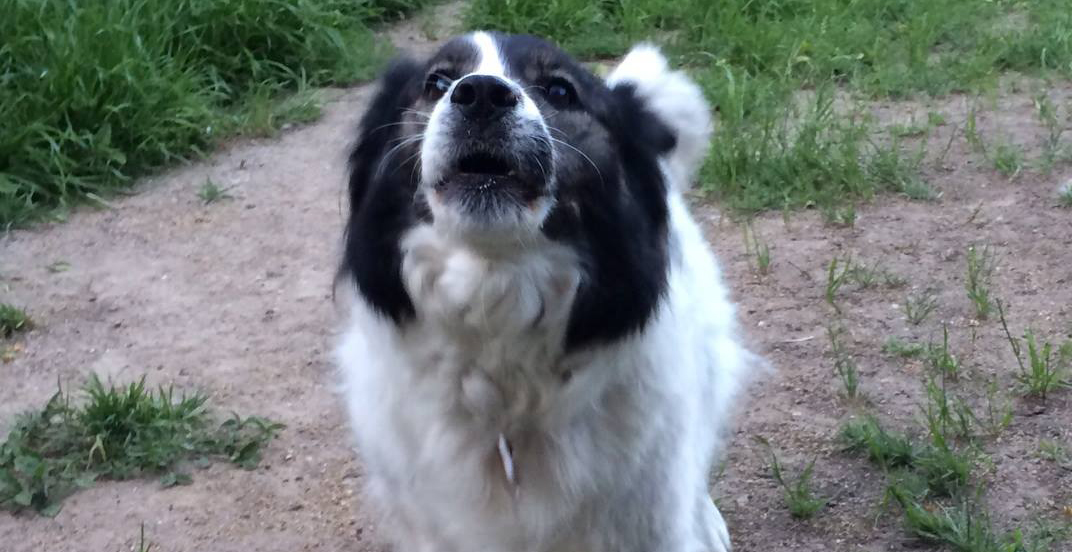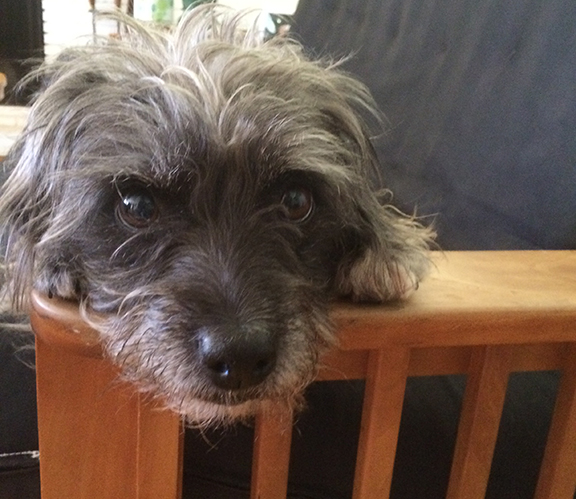
Television has ruined our expectations. Bad guys get caught in the 46 minutes between commercials, houses get torn down and rebuilt, animals get rescued and make a complete recovery, and dogs get amazingly “cured,” all in between selling us insurance, soda and toilet paper. If you’ve ever tried to do any of the above, you know it takes much longer. It’s not just the time to physically do the task, but there’s planning, purchasing, and clean up as well; and that’s if everything goes right! Imagine my surprise when I planned an hour to replace a broken window and wound up with 7 stitches in my thumb. Change is messy and it takes time.
When it comes to our dogs, there isn’t a magic pill to fix behavior problems. A dog trainer can’t take your dog and magically transform it into the perfect specimen of doggyness in 30 minutes, no matter what you see on TV. Part of the problem is we all had different visions of what the perfect dog is. Some people like dogs that jump because it makes them feel wanted, some like dogs that bark because it makes them feel safe, and some like dogs that just hang out and leave them alone. When someone goes to a trainer and says “I just want (fill in the blank) fixed,” that’s really not all they want, it’s just the most pressing issue in the whole owning a dog thing. There are probably more problems to be fixed, but there’s a top one that’s driving them nuts. The first expectation solution is to think big. What else do you want? After the problem is fixed, what else do you want to do with your dog?
There’s usually an underlying issue. Most dog problems are annoying symptoms of an underlying problem. Lunging and barking on leash is usually a symptom of fear or over-stimulation or aggression. Growling at people is usually fear based. Failing to learn to sit or down may actually be a medical issue. A good trainer wants to help with the real problem because once that gets better, so does everything else. Helping with the real problem may mean spending some time teaching the dog to learn to relax, or learn to trust, along with helping the human with their frustration and expectations.
Dealing with an underlying issue. As an example of dealing with an underlying issue, Olivia would attempt to bolt when she heard noises out on walks. The fear response wasn’t just to really loud noises like cars backfiring, but stepping on leaves and acorns, cars passing, and garage doors closing. This made walking frustrating with a dog pulling in all directions. Fixing the underlying issue meant giving Olivia a safe space to relax while she learned that noises aren’t so scary.
To clarify, it took months to get to the level of relaxation seen in the video. It took a solid plan, reading the dog to know when it was time to stop or take a step back or make things easier or try a new challenge, and lots and lots of patience. It also took the long view that a few months spent on dealing with the underlying issue meant a lifetime of success in other areas. Learning other skills will go faster. Trust has been built, so facing scary things together means the dog can look to the human for direction when she’s confused about what to do.
Frustration is the underlying issue. Just like on TV, most people wait until things are really bad before asking for help. We get frustrated, lose patience, and hit the point where we’ll do or try anything to get a problem fixed. Or, we’ve had some success with the problem, but it keeps coming back. Once we hit this point, we stomp and yell, jerk the leash, or decide throwing noisy things will stop the problem. Unfortunately, most of these natural frustration responses make the problems worse. If the real problem is fear, terrifying a dog into better behavior isn’t really going to work. The rational mind knows this, but the frustrated mind just needs the problem to stop. Take a breath and realize the problem probably isn’t as bad, or as often, as you imagine.
Where the real expectations should be. The real expectations shouldn’t be about how your dog behaves or how fast behavior gets better, but in the abilities of a trainer to help you. It may seem really weird to spend quite a lot of time working on relaxing on a mat, but check out Olivia’s progress above. Modern dog training works more with the underlying emotions than the visible behaviors. Along with relaxing, we also work with arousal, particularly in dog sports. It may seem weird to spend time teaching your dog to play with you, but the foundation of play will make learning sports skills go much faster.
We can all learn to relax and play. Getting past the expectation of, “My dog should know what to do and do it because I asked,” is actually the first step toward getting better behavior. At it’s core, modern dog training is about teaching both dogs and humans to play and relax, hopefully together. The ability to play is the highest sign of well-being. For the human, this requires letting go of frustrations and expectations of how our dog should be and see them for who they are. For the dog, this requires letting go of fear and uncertainty, and building trust and relaxation.
Play and relaxation are learned skills. Isn’t it time to let go of our expectations and just learn to relax and play? How do you relax and/ or play with your dog?




